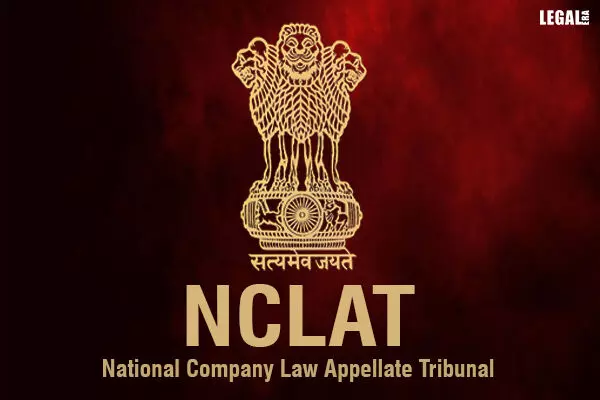- Home
- News
- Articles+
- Aerospace
- Artificial Intelligence
- Agriculture
- Alternate Dispute Resolution
- Arbitration & Mediation
- Banking and Finance
- Bankruptcy
- Book Review
- Bribery & Corruption
- Commercial Litigation
- Competition Law
- Conference Reports
- Consumer Products
- Contract
- Corporate Governance
- Corporate Law
- Covid-19
- Cryptocurrency
- Cybersecurity
- Data Protection
- Defence
- Digital Economy
- E-commerce
- Employment Law
- Energy and Natural Resources
- Entertainment and Sports Law
- Environmental Law
- Environmental, Social, and Governance
- Foreign Direct Investment
- Food and Beverage
- Gaming
- Health Care
- IBC Diaries
- In Focus
- Inclusion & Diversity
- Insurance Law
- Intellectual Property
- International Law
- IP & Tech Era
- Know the Law
- Labour Laws
- Law & Policy and Regulation
- Litigation
- Litigation Funding
- Manufacturing
- Mergers & Acquisitions
- NFTs
- Privacy
- Private Equity
- Project Finance
- Real Estate
- Risk and Compliance
- Student Corner
- Take On Board
- Tax
- Technology Media and Telecom
- Tributes
- Viewpoint
- Zoom In
- Law Firms
- In-House
- Rankings
- E-Magazine
- Legal Era TV
- Events
- Middle East
- Africa
- News
- Articles
- Aerospace
- Artificial Intelligence
- Agriculture
- Alternate Dispute Resolution
- Arbitration & Mediation
- Banking and Finance
- Bankruptcy
- Book Review
- Bribery & Corruption
- Commercial Litigation
- Competition Law
- Conference Reports
- Consumer Products
- Contract
- Corporate Governance
- Corporate Law
- Covid-19
- Cryptocurrency
- Cybersecurity
- Data Protection
- Defence
- Digital Economy
- E-commerce
- Employment Law
- Energy and Natural Resources
- Entertainment and Sports Law
- Environmental Law
- Environmental, Social, and Governance
- Foreign Direct Investment
- Food and Beverage
- Gaming
- Health Care
- IBC Diaries
- In Focus
- Inclusion & Diversity
- Insurance Law
- Intellectual Property
- International Law
- IP & Tech Era
- Know the Law
- Labour Laws
- Law & Policy and Regulation
- Litigation
- Litigation Funding
- Manufacturing
- Mergers & Acquisitions
- NFTs
- Privacy
- Private Equity
- Project Finance
- Real Estate
- Risk and Compliance
- Student Corner
- Take On Board
- Tax
- Technology Media and Telecom
- Tributes
- Viewpoint
- Zoom In
- Law Firms
- In-House
- Rankings
- E-Magazine
- Legal Era TV
- Events
- Middle East
- Africa
NCLAT Chennai: Resolution Professional has the Power to Keep Claims in Abeyance

NCLAT Chennai: Resolution Professional has the Power to Keep Claims in Abeyance
The National Company Law Appellate Tribunal (NCLAT), Chennai bench, coram comprising of Justice M. Venugopal (Judicial Member) and Ms. Shreesha Merla (Technical Member), while adjudicating an appeal held that it is within the power of the Resolution Professional to keep the claim(s) submitted by the creditors in abeyance, for plurality of reasons.
The brief background of the case is that in 2015, Anheuser Busch Inbev India Limited (Appellant/Financial Creditor) and East Godavari Breweries Pvt. Ltd. (Corporate Debtor) entered into a Brewing Agreement, wherein the Corporate Debtor allegedly failed to fulfil its obligations.
The Appellant referred the matter to arbitration for recovery of the amount due from the Corporate Debtor. The Corporate Debtor had also filed a Counter Claim against the Appellant which is pending determination.
The Financial Creditor had furnished its claim before the Resolution Professional and the same was kept in abeyance by the Resolution Professional, on the basis that Arbitration Proceedings are pending, wherein, the counterclaim of the Corporate Debtor is pending determination.
The clear-cut stand of the Resolution Professional (Respondent) was that, he took all measures to collate, verify, determine all the valid claims.
The Resolution Professional did not accept the Appellant’s claim and rather kept the claim in abeyance. The Respondent contended that since the final admissible claim amount would depend on the outcome of the Arbitration Proceedings and the determination of Corporate Debtor’s Counter Claim.
Thereafter, the Appellant filed an application before the NCLT seeking direction to the Resolution Professional to admit the claim and include the Appellant in the Committee of Creditors.
On 2 December, 2022, the NCLT dismissed the application on the ground that the Resolution Professional was justified in keeping the Claim in abeyance as the Arbitration Proceedings were pending and due to the Counter Claim of the Corporate Debtor.
Aggrieved by the same, the Appellant filed an appeal before the NCLAT against the Order dated 2 December, 2022. The Resolution Professional opposed the appeal while contending that the outcome of arbitration proceedings would determine if the claim has to be accepted, partially accepted or rejected.
The NCLAT observed that in the instant case the Appellant’s Claim, cannot be admitted, till the counterclaim of the Corporate Debtor, is determined, which may end in set off of the Sum, payable to the Appellant / Petitioner, the plea of the Respondent / Resolution Professional, cannot be brushed aside and in an emergency and also when a situation arises, the Resolution Professional, is within his to keep the Claims, in abeyance, for plurality of reasons.
The NCLAT concluded that the action of the Resolution Professional in keeping the claims in abeyance, because of the pending arbitration proceedings in regard to the counterclaim of the Corporate Debtor, only after which, the claim sum of the Appellant can be determined with certainty, the reliefs prayed for, by the Appellant pertaining to admission of the claim cannot be acceded to in the eye of law.
Accordingly, the appeal was dismissed.



